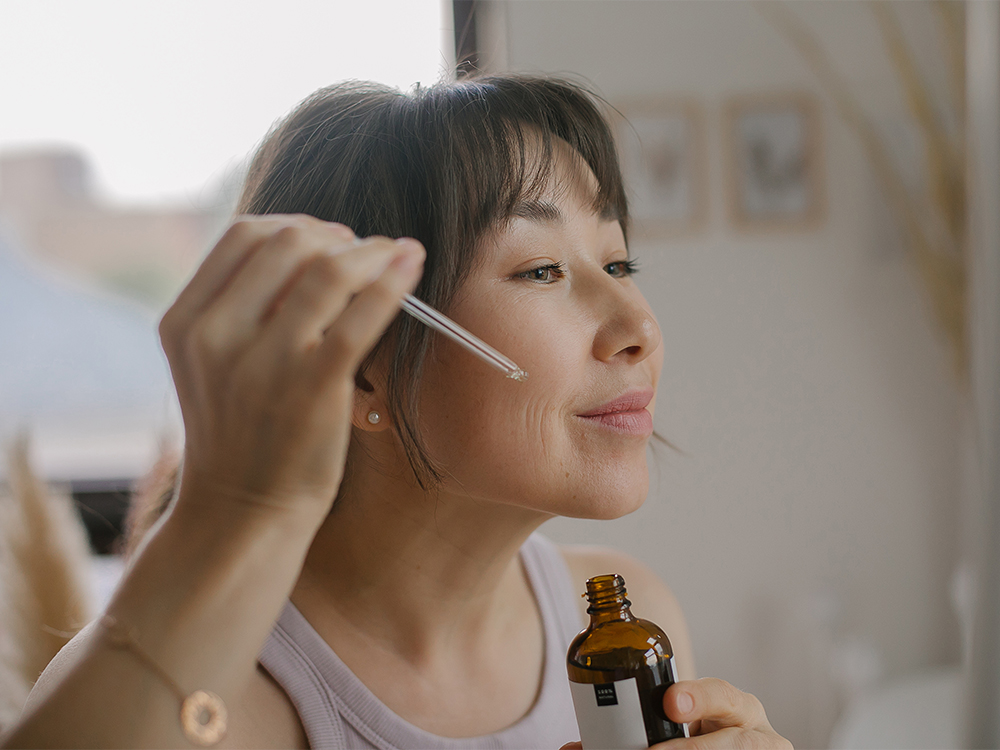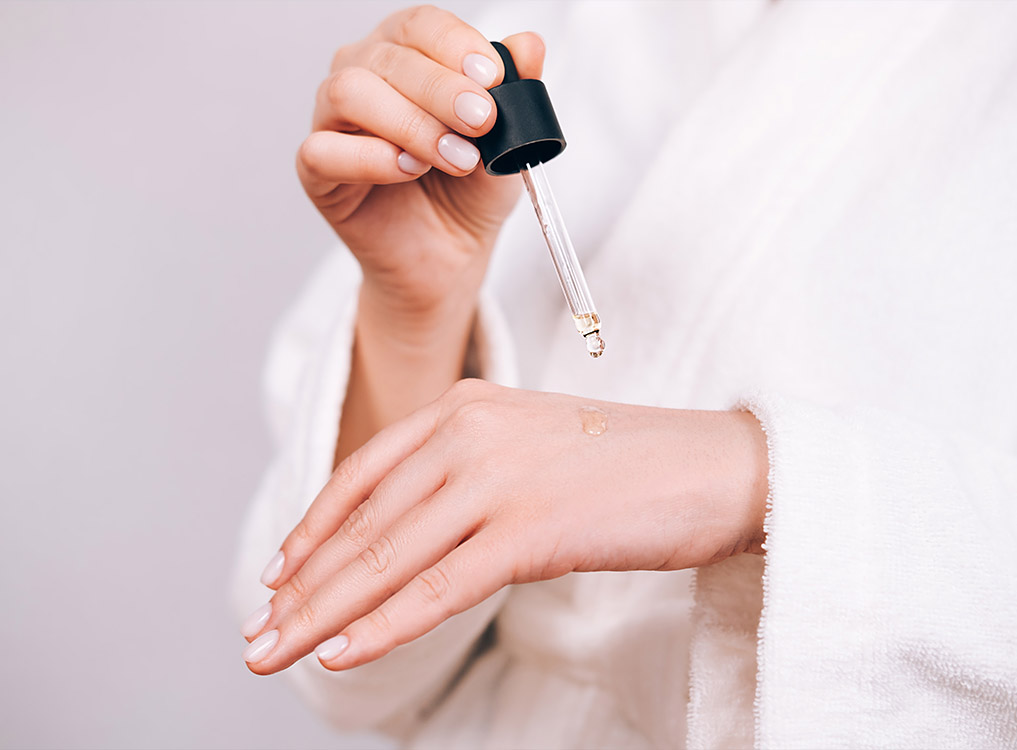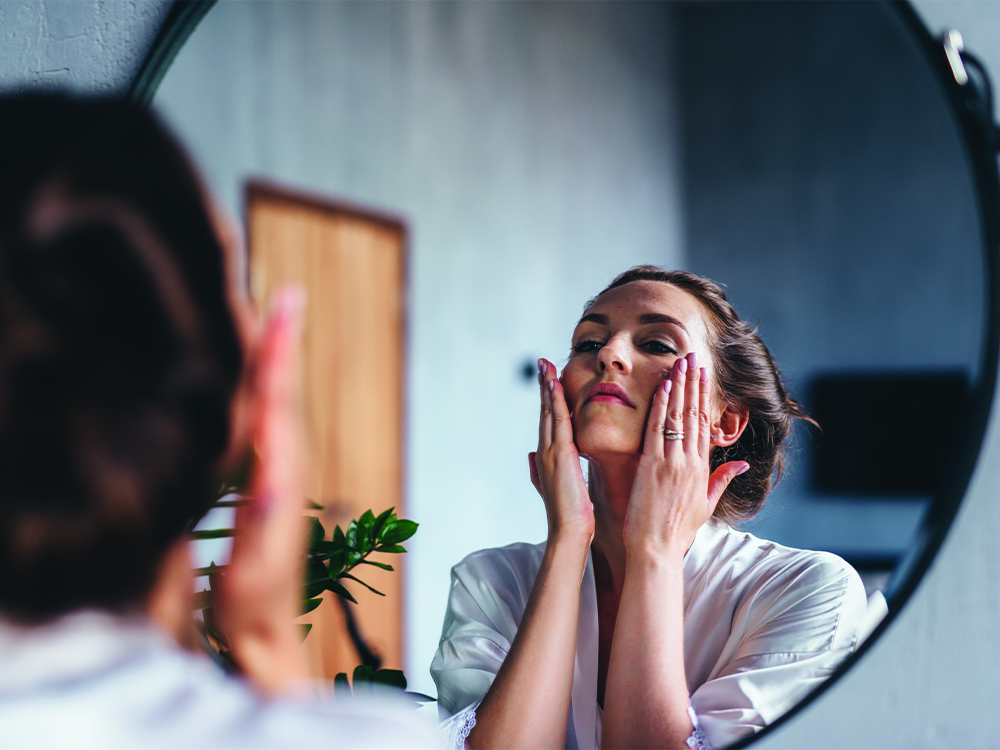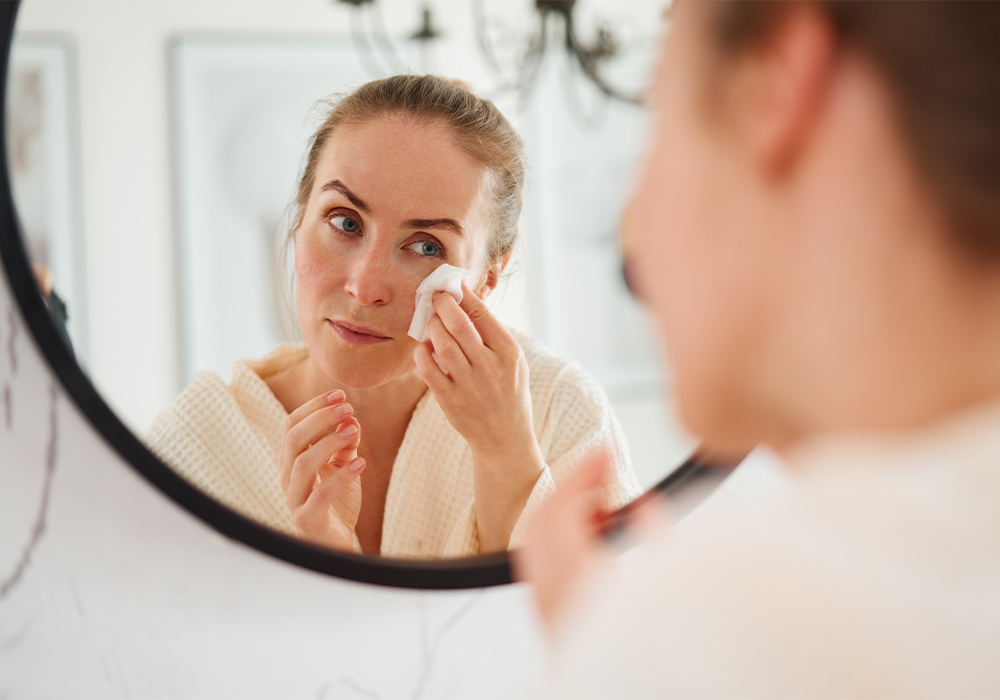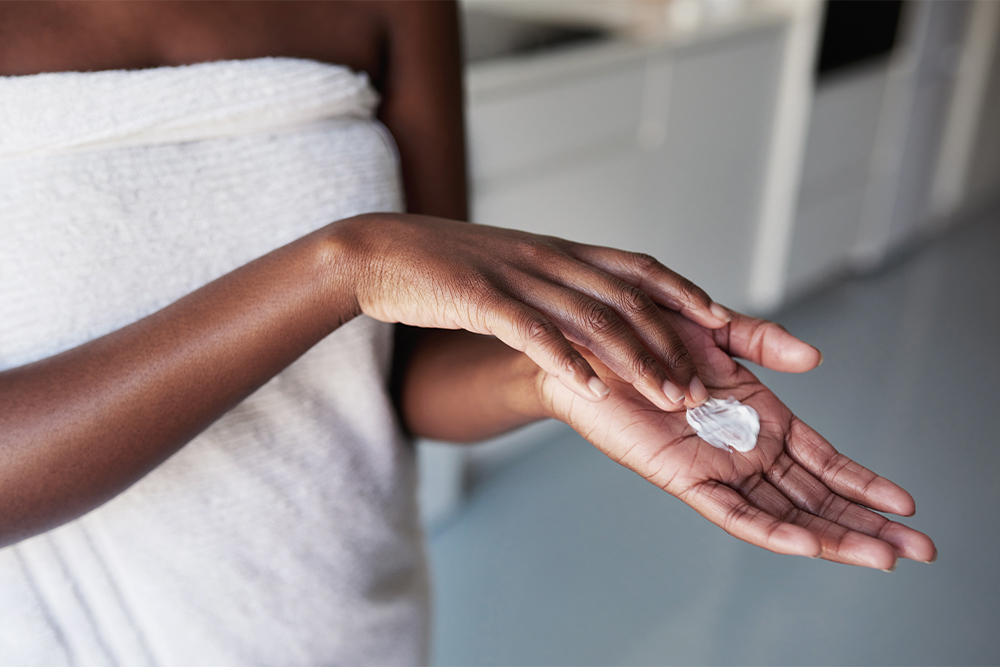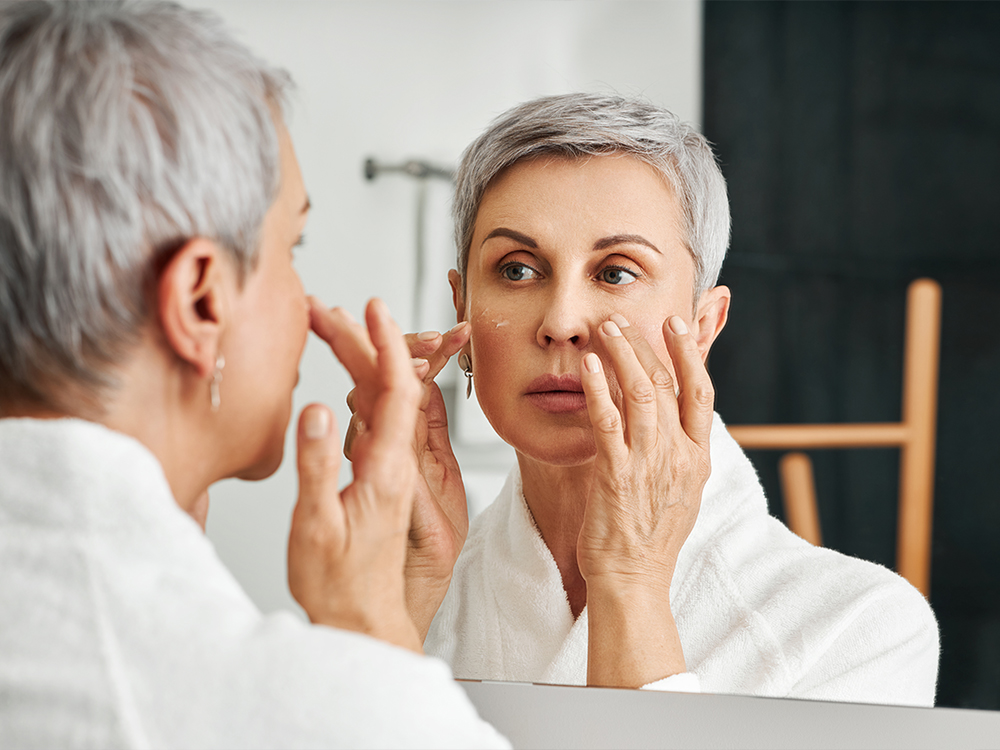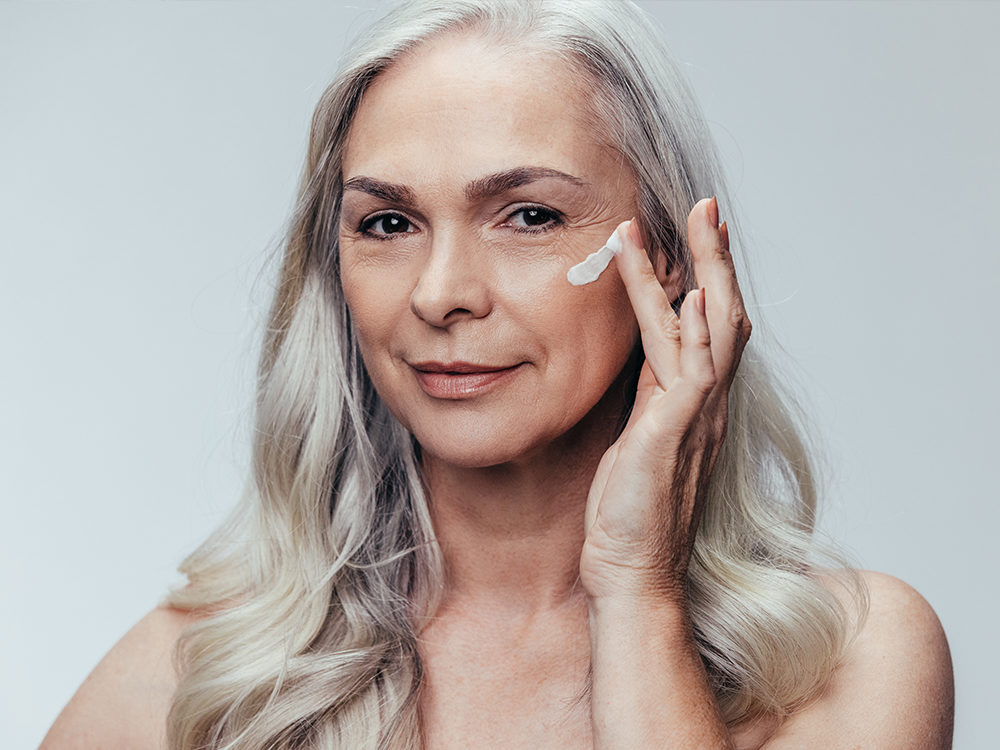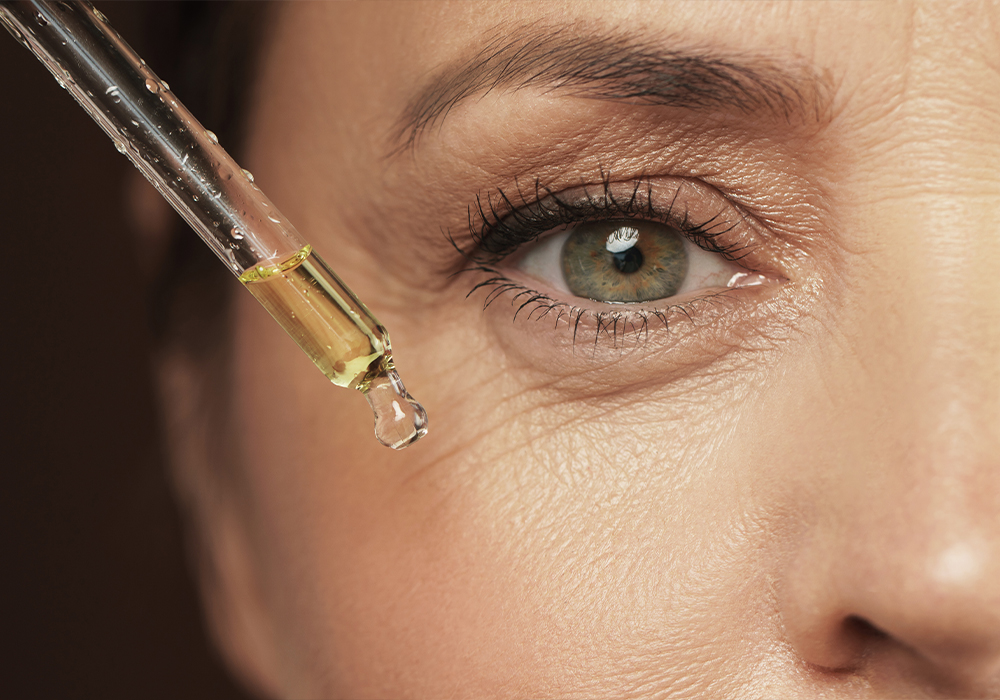
The Top Ingredients to Look For in Menopausal Skin-Care
Our bodies go through hundreds of big and little changes during menopause. While the shifts in sex drive, body temperature, mood and weight tend to take the front seat, there can also be a variety of changes in the skin. “Menopausal skin concerns that accompany and follow menopause include dry and thinning skin, wrinkling and laxity,” says New York dermatologist Marina Peredo, MD. Estrogen plays a crucial role in retaining moisture and helping to support skin thickness, explains Dr. Peredo. “Post-menopausal women can experience as much as a 30 percent loss in skin collagen in the first five years of menopause,” she adds.
Nanuet, NY dermatologist Heidi Waldorf, MD says that any skin care that helps aging skin is beneficial for menopausal skin. For example, sunscreen and moisturizers are a must. We asked dermatologists which ingredients specifically help combat symptoms of menopause that manifest in the skin so you can stock up on products that are chock full of these boosters.
Find a Doctor
Find a NewBeauty “Top Beauty Doctor” Near you

